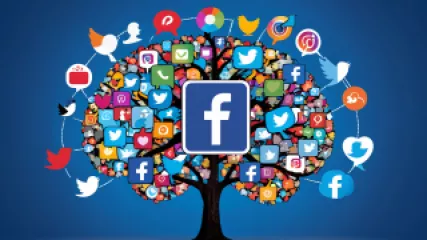Top 10 Ways Social Networking Impacts Mental Health
Social networking has become an integral part of our daily lives, providing us with a platform to connect with others, share our thoughts and experiences, and access information. While it has undoubtedly revolutionized the way we communicate and interact, there is growing concern about its impact on mental health. In this article, we will explore the top 10 ways social networking impacts mental health, shedding light on both the positive and negative effects.
1. Increased Connectivity and Support
Social networking platforms offer individuals the opportunity to connect with friends, family, and communities across the globe. This increased connectivity can provide a sense of belonging and support, especially for those who may feel isolated or have limited social interactions in their offline lives. Online communities also exist to support individuals who share similar experiences or face common challenges, such as mental health conditions.
2. Access to Online Mental Health Support
The digital age has brought forth a wealth of online mental health resources, including therapy platforms, support groups, and informational websites. These platforms offer convenient and accessible avenues for individuals to seek guidance, advice, and even professional help. Those who may be hesitant to seek therapy in traditional settings can benefit from the anonymity and convenience of online therapy, which can be particularly valuable for individuals in remote areas or with limited mobility.
3. Information Overload and Anxiety
While social networking platforms provide us with a vast amount of information at our fingertips, this constant stream of content can be overwhelming. The pressure to keep up with news, trends, and the lives of others can contribute to information overload and a sense of anxiety. The fear of missing out (FOMO) can lead to increased stress levels and a constant need to be connected.
4. Comparison and Self-Esteem Issues
Social networking platforms often present a carefully curated version of people's lives, showcasing their best moments and achievements. This can lead to social comparison and feelings of inadequacy or low self-esteem. Constantly being exposed to highly edited and filtered images can create unrealistic beauty standards and foster feelings of insecurity.
5. Cyberbullying and Online Harassment
Unfortunately, the anonymity and distance provided by social networking platforms can give rise to cyberbullying and online harassment. Individuals may face verbal abuse, threats, or the spreading of harmful rumors. Such negative experiences can have severe consequences for one's mental well-being, leading to increased stress, anxiety, and even depression.
6. Impact on Sleep Patterns
The excessive use of social networking platforms, particularly before bedtime, can disrupt sleep patterns. The blue light emitted by screens interferes with the body's natural sleep-wake cycle, making it harder to fall asleep and achieve restful sleep. Poor sleep quality can negatively affect mental health, contributing to mood disorders and cognitive impairment.
7. Fear of Missing Out (FOMO)
The constant exposure to the exciting and seemingly fulfilling lives of others can trigger a fear of missing out. Individuals may feel pressured to constantly engage with social media to ensure they do not miss out on events, experiences, or opportunities. This fear can lead to increased stress levels and a sense of dissatisfaction with one's own life.
8. Addiction and Dependency
Social networking platforms are designed to be addictive, employing various techniques to keep users engaged for longer periods. The constant need for validation through likes, comments, and shares can create a dependency on social media, affecting one's self-esteem and overall well-being. Excessive use can also lead to neglecting real-life relationships and responsibilities.
9. Impact on Interpersonal Relationships
While social networking platforms provide opportunities for connection, they can also strain interpersonal relationships. Excessive screen time can lead to reduced face-to-face interactions and a decline in the quality of communication. Social media can also contribute to misunderstandings, conflicts, and jealousy within relationships, as online interactions may be misinterpreted or create feelings of insecurity.
10. Privacy and Security Concerns
Social networking platforms often require users to share personal information, which raises privacy and security concerns. The potential for data breaches, identity theft, and unauthorized access to personal information can lead to anxiety and mistrust. Maintaining a balance between sharing and protecting one's privacy can be challenging in the digital age.
In conclusion, social networking has a profound impact on mental health, with both positive and negative consequences. While it provides increased connectivity, access to support, and valuable resources, it also exposes individuals to information overload, social comparison, cyberbullying, and privacy concerns. It is crucial to be mindful of our social media usage and establish healthy boundaries to protect our mental well-being. By harnessing the benefits of social networking while mitigating its potential harms, we can navigate the digital landscape in a way that promotes positive mental health.






